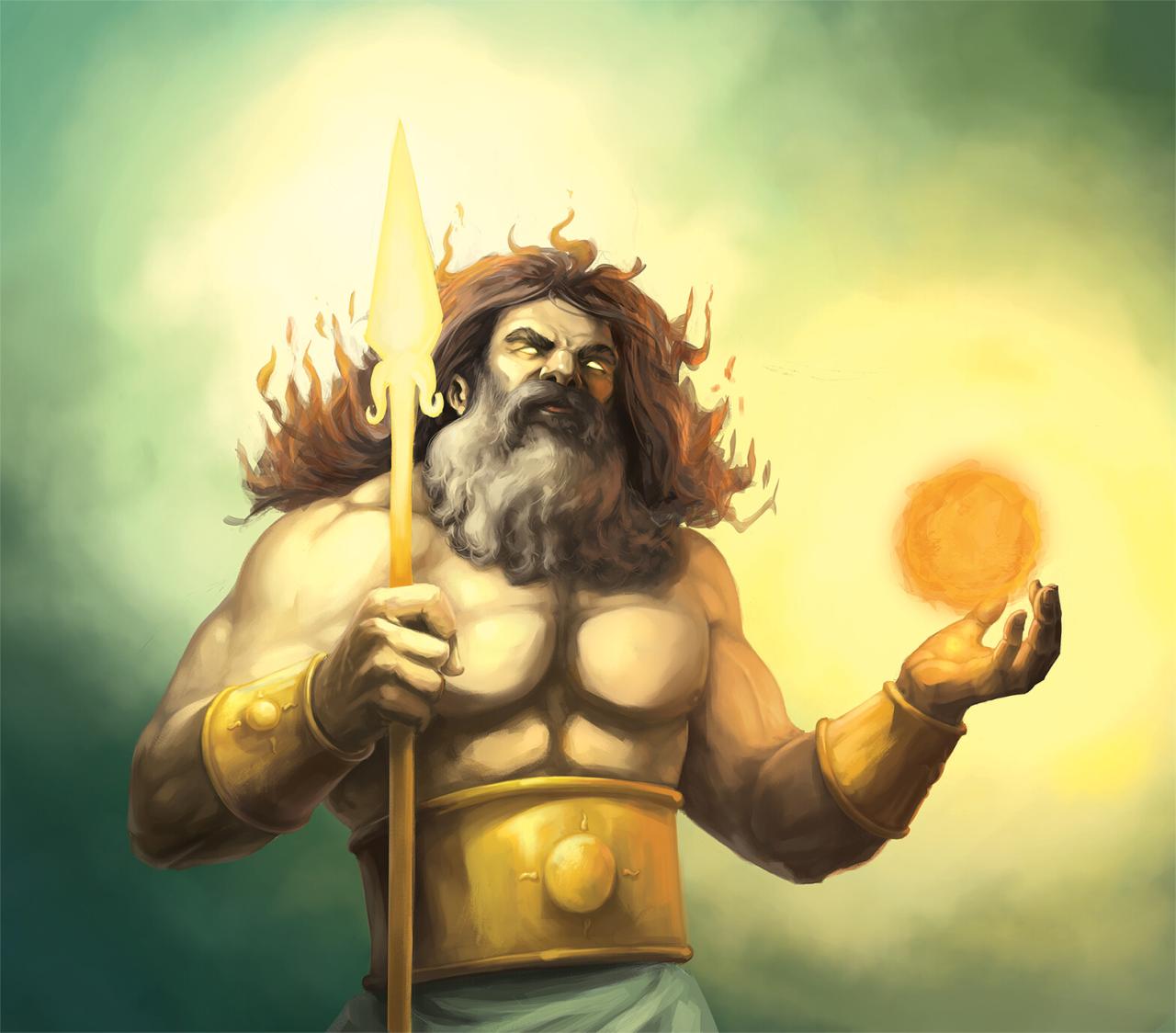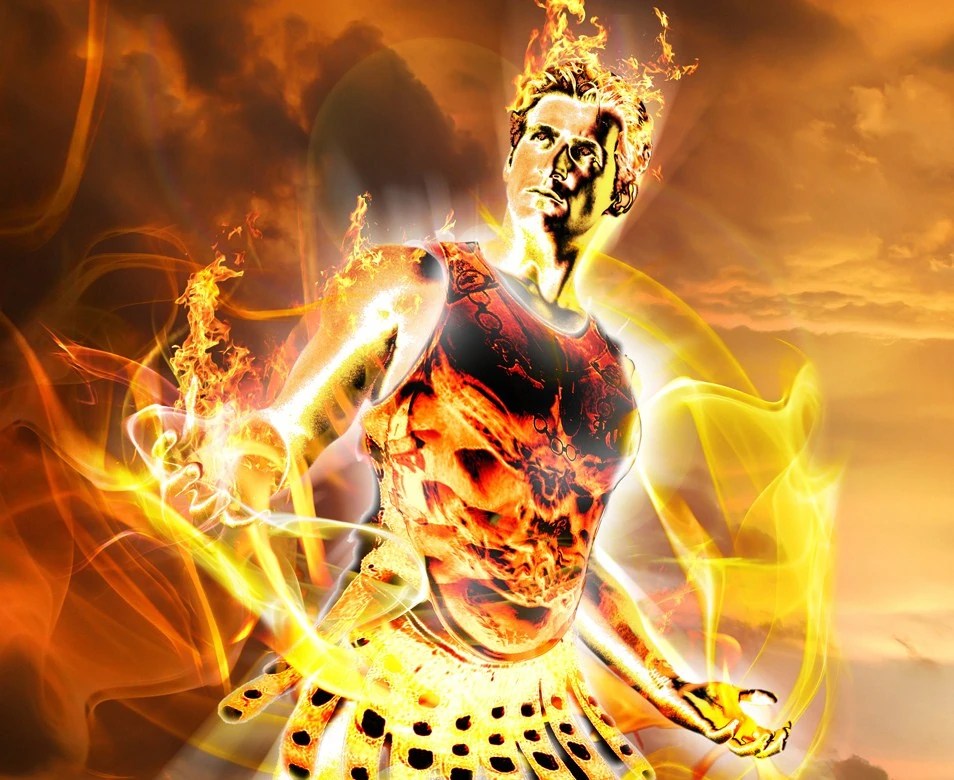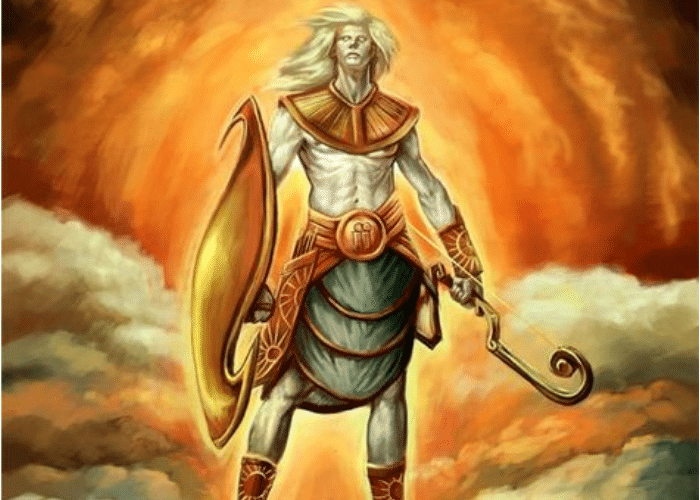Hamlet describes his father as a hyperion a god of – In Shakespeare’s Hamlet, the protagonist’s description of his father as “Hyperion, a god of the sun” elevates the deceased king to a realm of divinity, underscoring his exceptional qualities and profound influence on the play’s themes and characters.
This comparison is not merely a poetic embellishment but a deliberate literary device that illuminates Hamlet’s complex relationship with his father, his own identity, and the overarching conflict of the play.
Hyperion’s Divinity and Majesty
In Greek mythology, Hyperion was a Titan, the god of light, and the father of Helios, the sun god. As a divine figure, Hyperion possessed immense power and majesty, symbolizing the brilliance and illuminating nature of the sun. Hamlet’s comparison of his father to Hyperion elevates his status, suggesting that he was a man of exceptional nobility, brilliance, and authority.
Physical and Character Traits: Hamlet Describes His Father As A Hyperion A God Of

Hamlet describes his father as having a “Hyperion’s curls” and a “front like Jove.” These physical attributes evoke images of grandeur and godlike presence. The curls, often associated with Apollo, the god of music and poetry, hint at his father’s artistic and intellectual prowess.
The “front like Jove,” referring to the Roman god Jupiter, suggests his commanding presence and regal bearing.
Beyond physical attributes, Hamlet also highlights his father’s character qualities. He refers to his “majesty in shape,” suggesting a dignified and authoritative demeanor. The “mirrored world” in his father’s face implies a profound understanding and reflection of the world around him.
Symbolic Representation

The comparison of Hamlet’s father to Hyperion serves as a potent symbol. It reflects Hamlet’s deep admiration and reverence for his father, whom he sees as a paragon of virtue and authority. The association with Hyperion, the god of light, suggests that Hamlet’s father was a source of guidance and illumination in his life.
This comparison also foreshadows Hamlet’s own journey of self-discovery and maturation. As Hyperion’s son, Helios, inherited his father’s divine power and became the sun god, Hamlet may see himself as destined to fulfill a similar role of leadership and enlightenment.
Literary Devices

Shakespeare employs several literary devices to enhance the impact and meaning of Hamlet’s comparison. The metaphor of “Hyperion’s curls” directly equates Hamlet’s father to the god, elevating his status and creating a vivid image in the reader’s mind.
The simile “front like Jove” uses a comparison to another divine figure to further emphasize his father’s majestic and commanding presence. The use of hyperbole in describing his father’s face as a “mirrored world” suggests his profound wisdom and understanding.
Influence on the Play
Hamlet’s description of his father as Hyperion has a significant impact on the plot and themes of the play. It foreshadows Hamlet’s struggle to live up to his father’s legacy and his eventual transformation into a more decisive and resolute leader.
The comparison also contributes to the play’s central conflict between Hamlet and Claudius. Claudius’s usurpation of the throne and murder of Hamlet’s father cast him as a shadow figure, contrasting sharply with the idealized image of Hyperion.
Essential FAQs
What is the significance of Hamlet comparing his father to Hyperion?
By likening his father to the Greek sun god, Hamlet elevates him to a divine status, emphasizing his majesty, power, and the profound impact he had on his son.
How does the Hyperion comparison reflect Hamlet’s view of his father’s legacy?
Hamlet’s description suggests that he sees his father as a towering figure, whose absence has left a void in his life and the kingdom.
What literary devices does Shakespeare employ in Hamlet’s description of his father?
Shakespeare uses metaphors, similes, and other figures of speech to create a vivid and memorable portrait of Hamlet’s father, highlighting his godlike qualities.